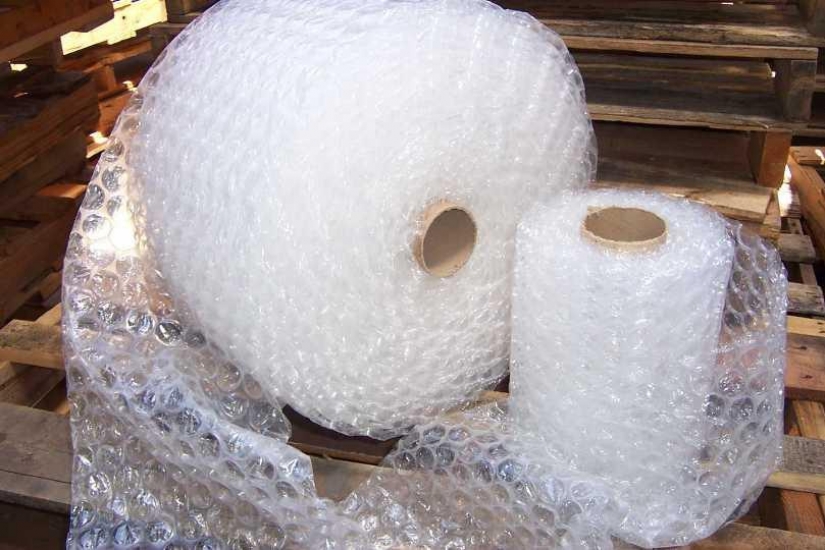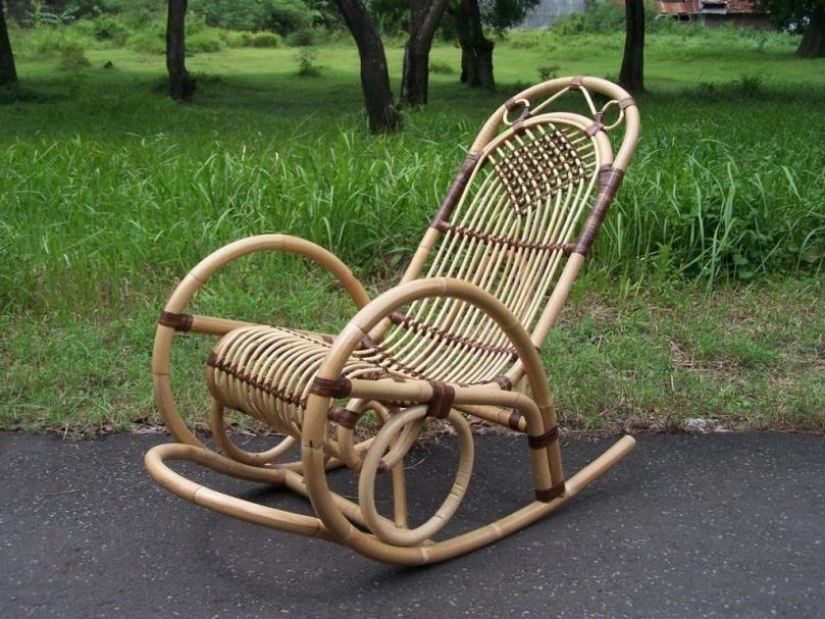7 inventions made so well that they never needed improving
In October 1873, Joseph Glidden, American farmer from Illinois, has applied for a patent on barbed wire, giving it the form in which it is used today.
Continuous improvement and improvement of tools and household items and makes our life easier and more convenient. For example, if today someone will try to write an original pen 1868 from Sholes and Glidden, the writing thesis, it will cover the hands countless calluses. But if you would have had to open a medieval castle, you spent a long time with him before he learned to make the key a sharp blow, which was just opening.
However, paradoxically, there are currently a number of things, despite the fact that since their invention more than a century, is still preserved in its original form without improvements.


Bubble wrap
In the late 1950-ies designers Alfred Fielding and Marc Chavannes came up with a brilliant idea, perfect for aesthetic interior design of the space age: cellophane volume tactile Wallpaper! Unfortunately, plastic curtains with air bubbles and did not become fashionable. Then innovators decided to just change the purpose of the invention. In 1964 they patented their own "method of manufacturing laminated cushioning material". Thus bubble wrap (for English — bubble wrap) has become the perfect way to keep fragile and valuable items during transportation. This package is widely used due to its practicality and low cost.

Rocking chair
A rocking chair is not as old as you think. These chairs began to appear in the beginning of XVIII century in the United States and is still popular with people suffering from diseases of the back or musculoskeletal system. It is not just soothing swing. Rocking chairs automatically adjust your center of balance, to whoever sits in them every time he occupied a comfortable position.

Clip
Design of thin wire, which flooded the patent offices in the late nineteenth century was of various forms — in the form of wings, triangles, pretzels and so forth, but the purpose at them was one and the same: retention of a certain number of sheets of paper. All of them were patented, but the form to which we are accustomed to for 100 years. Standard oblong design "Pearl", has a controversial origin, nevertheless defeated all other, throwing them in a drawer of history.

The teapot
Archaeologists believe that the kettles were invented during the reign of the Chinese yuan dynasty, which began with 1279 years. The first teapots were made of clay and probably has changed over the years. It is believed that the original teapots were designed for one serving — so stands the purpose of a spout, from which straight drinker and sipped his tea. Today you can buy a teapot made of porcelain, glass, paper, or titanium. But its simple and perfect design, consisting of a handle, lid and spout, remained unchanged for hundreds of years.

Fly swatter
Handle and small dense grid at the end. This primitive but effective device is in almost every home, and it is indispensable in the summer months to deal with fly flies, mosquitoes and wasps. "The killer on the fly" was patented in 1900 by Robert Montgomery. This man was a public health worker in Kansas and popularized his invention for killing flies to stop the spread of disease. Oddly enough, but such a primitive fly swatter was very effective weapon against evasive insects.

Mousetrap
God forbid your house gets a mouse. To get rid of them will be a real problem. And if the tenants don't own a cat who is not averse to hunt for mice, the best way will be trap. One time the mouse was terrible parasites: these crafty animals were a threat to children and food, and also spread various diseases, until the plague. Fortunately, in 1894, William hooker invented the spring-loaded mousetrap. In 1903, John mast made constructive improvement, making it safer to download the bait. The design of the traps are still in use today.
 Barbed wire
Barbed wire
In the XIX century in the prairies of Oklahoma was quite difficult to make a fence for containment of grazing. After all, there's enough wood to build fences. What should I do? Four local boys in the late 1870s came up with the design of the fence, consisting of rare supporting pillars and stretched between barbed wire. Barbed wire was patented and since then is available in an unchanged form.
Keywords: The invention | Wire | Of progress
Post News ArticleRecent articles

It's high time to admit that this whole hipster idea has gone too far. The concept has become so popular that even restaurants have ...

There is a perception that people only use 10% of their brain potential. But the heroes of our review, apparently, found a way to ...
Related articles

Today, there are much fewer wires between urban buildings. But 10-15 years ago, a web of motley conductors thickly entwined gaps ...

Each of us saw sneakers or shoes hanging over the street on wires. This phenomenon can be called international-it is found in our ...

We are already used to wireless phones, keyboards and headphones, but technology does not stand still, making the world more active ...

New Year's is a time to surprise and delight loved ones not only with gifts but also with a unique presentation of the holiday ...